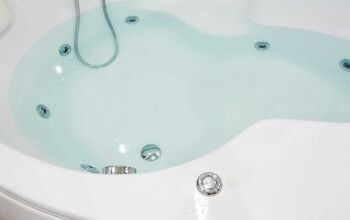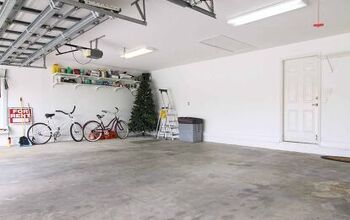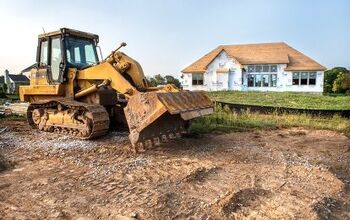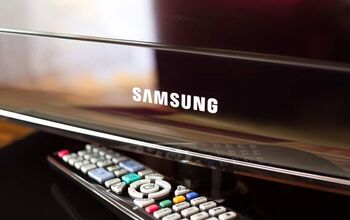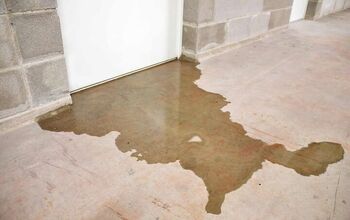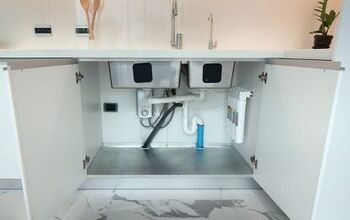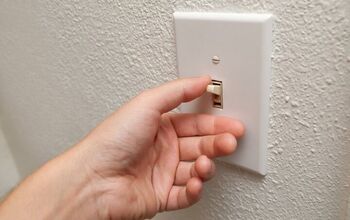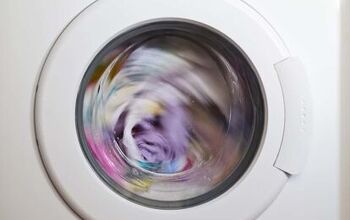How To Hook Up An External Propane Tank To An RV

RVing is an excellent way to get out and see the world. If you plan on staying in one place for a while, you may be interested in hooking up an external propane tank to your RV. Doing so will ensure you never run out of propane in your current location.
To hook up an external propane tank to your RV, you’ll first need to install an extend-a-stay kit on your vehicle’s existing propane tank. Then, use an extension hose to connect that to the external tank. Finish by finding the right regulator to ensure everything functions as it should.
This project is a bit more involved than you may have anticipated. However, it’s certainly not impossible. With the right instructions, you can enjoy the benefits of an external propane tank in no time. Keep reading to learn more.
What Is An External Propane Tank?
An external propane tank is exactly what it sounds like. It’s a large propane tank that exists on the exterior of your RV. This differs from standard RV propane tanks, which often mount to the frame of the vehicle itself.
There are several reasons why you would want to hook your RV up to an external propane tank. Most importantly, doing so will provide you with all of the propane you need for an extended stay in a specific location.
Additionally, external propane tanks can be much easier to fill than standard RV propane tanks. To fill a standard tank, you’ll often have to drive your RV to a specialized refilling station. You can fill external propane tanks without having to move your RV at all.
How Do You Connect An External Propane Tank?
There are many reasons that someone needs to connect an external propane tank. Here are the steps that you can take below.
Step 1: Purchase and Install an Extend-A-Stay Kit
The first step in hooking up an external propane tank to an RV is installing an extend-a-stay kit to your vehicle’s propane tank. This is also sometimes called a Stay-a-While kit.
Essentially, this is a “tea” that will fit between coaches and propane coaches. The kits have two connections. One is an outflow port that sends propane out to devices like small barbecues.
The other connection is a 1/4 inverted flare connection. This is where you’ll eventually connect an external propane tank
Step 2: Connect the Extend-a-Stay Kit to the External Tank
The next step in this process is to connect your extend-a-stay kit to the external tank. This is best done by utilizing propane hoses. You should be able to find these at a local propane store or even a local hardware store.
Keep in mind that the hose leading away from your extend-a-stay kit will be meant for devices like propane grills. This won’t connect directly to a large external propane tank.
Instead, you’ll need to purchase a specialty hose to make this connection. One end of the hose should connect to smaller devices like propane grills and the other end should be a standard propane hose that’s meant for large external tanks.
Step 3: Find the Right Regulator
You may think the job is finished after you connect your extend-a-stay kit to the external propane tank. However, that’s not actually the case.
Your standard RV propane tank features what’s called a regulator. This does exactly what it suggests — regulates the flow of propane gas that exits the tank.
Regulators are an important safety feature that will protect you from leaks and possibly even explosions. However, external propane tanks also have regulators.
Low Flow
This means that, if left unchecked, the propane that flows from an external tank into your RV will be regulated twice. This leads to a very low flow of propane that will make it difficult to both cook in and heat your vehicle.
To solve this issue, you’ll need to purchase the right regulator for the external tank. Doing this will ensure that your RV is still able to receive the amount of propane it needs to function properly despite the double regulation that’s occurring.
Individual needs will vary here. To finish this project, you’ll need to consult with a local propane technician. They can tell you the exact type of regulator you need for your external tank and can warn you of any other potential pitfalls that are unique to your situation.
What Is Propane Used For In RVs?
Propane is the most commonly used source of energy in RVs. It’s a form of liquid petroleum that’s used as a gas.
The most common use of propane in RVs is cooking. If your camper has a gas stove, then it’s powered with propane. Propane is also often used in RVs to:
- Heat and cool the vehicle
- Heat water
- Power the refrigerator
Some RVs even use a combination of propane and electricity to power the entire vehicle. Given the many uses of propane, it’s easy to see why RVers would want access to more of it in the form of an external tank.
what Are The Pitfalls Of Using Propane In RVs?
While propane is an extremely useful fuel source for recreational vehicles, it’s not without its problems. One of these is regulator failures.
Regulators generally last between 8 and 10 years. When your regulator breaks, you’ll notice irregularities in the flow of your propane. When this happens, there are no other options but to replace it.
RVers also need to be aware of and prepared for propane leaks. They occur when a part of your supply line is damaged. This may happen in a variety of scenarios.
Are Propane Leaks Dangerous?
Propane leaks are dangerous. When one occurs, you should be able to smell the propane. Most RVs also include detectors that will alert you to the existence of the leak. Make sure to test these before leaving on your next trip to keep your family safe.
If you smell propane or notice a leak, turn off your RV and the appliances in it as quickly as possible. Propane is a highly flammable gas that can cause explosions when exposed to fire.
Ultimately, you can avoid these pitfalls by understanding how to identify them. Take the time to prepare yourself and your family to ensure you can enjoy using propane in your RV without having to worry about these issues.
Related Questions
Can you use propane while driving an RV?
Many RVers choose to leave their propane on while driving — especially when the vehicle’s refrigerator is propane powered. However, doing so is exceptionally dangerous.If you get in an accident and your propane is on, it could ignite instantly. This means that the tiniest fender bender could put the lives of your entire family at risk. It’s much safer to turn the propane off while driving your RV.
How long does propane last?
Unfortunately, there’s no easy answer to this question. Your propane will last longer if you have a larger tank and use it less. It will last shorter if the opposite is true.Generally speaking, a 30 lbs propane tank will power an RV for about six weeks. However, you’ll want to make sure to track your propane gauges to make sure you don’t run out sooner than expected.

Kellan is a content writer who specializes in everything DIY. When he's not behind the keyboard, he enjoys spending time with his pets, playing music, and geeking out about basketball. He hopes to make your home improvement projects a little bit easier to accomplish.
More by Kellan Jansen



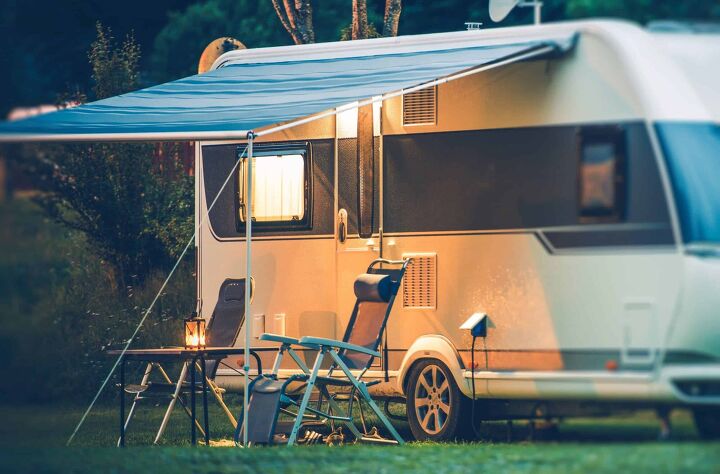








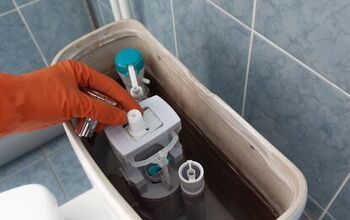
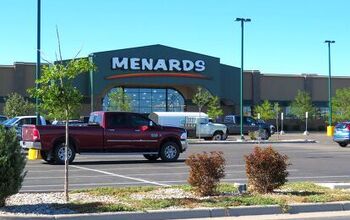
![10 Best Zero Turn Mowers – [2022 Reviews & Ultimate Buyer's Guide]](https://cdn-fastly.upgradedhome.com/media/2023/07/31/9070522/10-best-zero-turn-mowers-2022-reviews-ultimate-buyer-s-guide.jpg?size=350x220)
